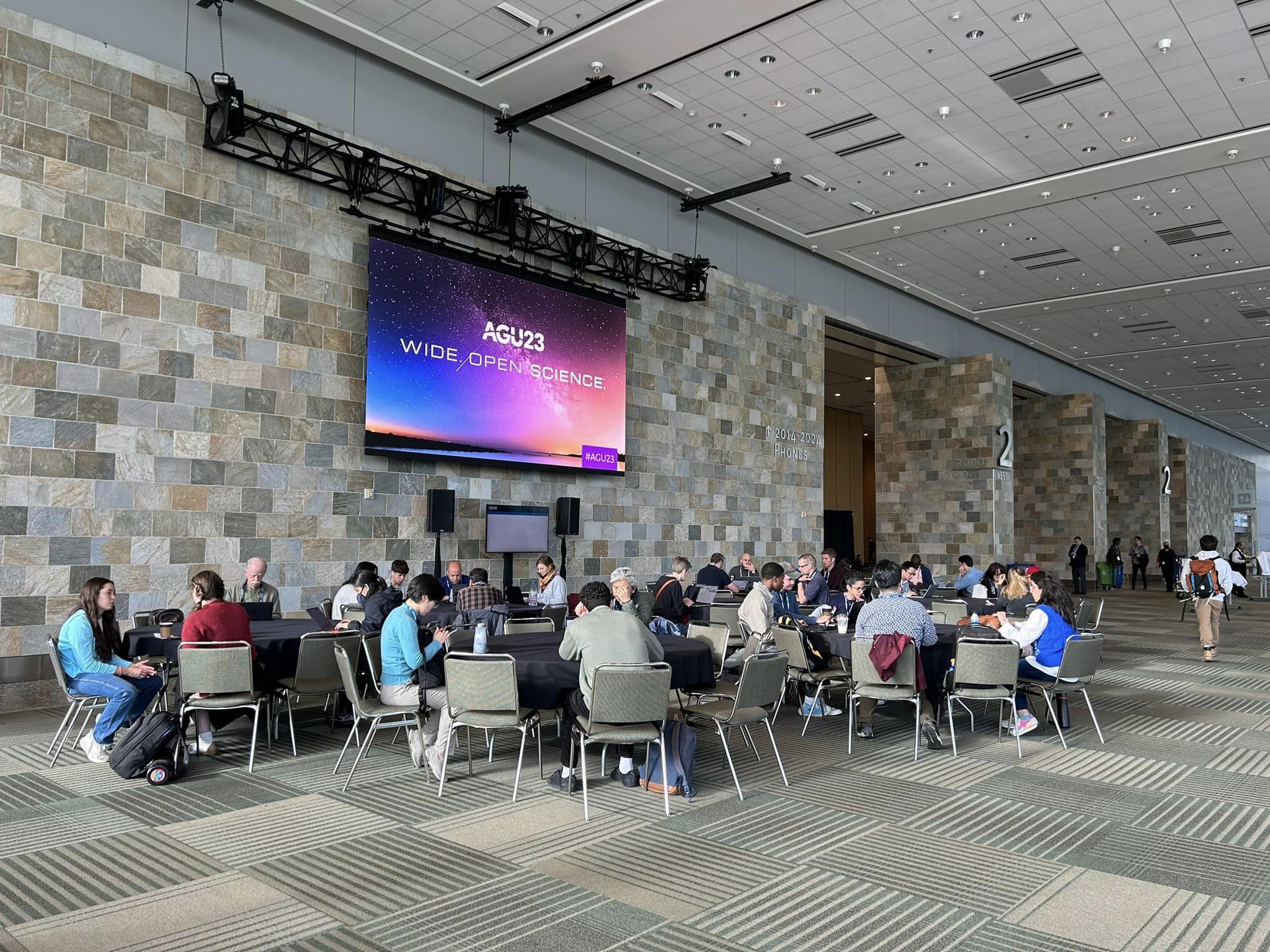
Researchers Lead Science, Discovery and Engineering Forward at AGU23
The University of Michigan Department of Climate and Space was well-represented at the annual meeting of the American Geophysical Union in December.

The University of Michigan Department of Climate and Space was well-represented at the annual meeting of the American Geophysical Union in December.
Many faculty, research scientists and students from the University of Michigan Department of Climate and Space Sciences and Engineering attended the fall meeting of the American Geophysical Union, which convened in San Francisco, California from December 11-15, 2023. They convened sessions, presented scientific findings and research, and participated in activities on topics ranging from climate issues and space weather obstacles to diversity, equity and inclusion.
The presentations from University of Michigan faculty, students and researchers spanned a broad range of space sciences and engineering, including topics like the MAAX mission concept, the SWIFT Mission (Space Weather Investigation Frontier), observations by the Parker Solar Probe, and new efforts and centers designed to advance space weather modeling. Presentations also spanned a broad range of climate sciences topics, including methane emissions from offshore drilling, the implications of severe weather and flooding events, the melting of Antarctic ice, the impacts of climate change, and the importance of engaging in science policy. Faculty also participated in a session on “Raising Awareness on Mental Health in the Earth and Space Sciences.”
Every year, AGU’s annual meeting convenes more than 25,000 attendees from over 100 countries to share research and connect with friends and colleagues in their scientific fields. Scientists, educators, policymakers, journalists and communicators attend AGU23 to better understand our planet and environment. The opportunities at the conference open pathways to discovery, foster greater awareness to address climate change, and create greater collaborations leading to solutions, as well as ushering in a new era of justice equity, diversity, inclusion and belonging in the professions of science.